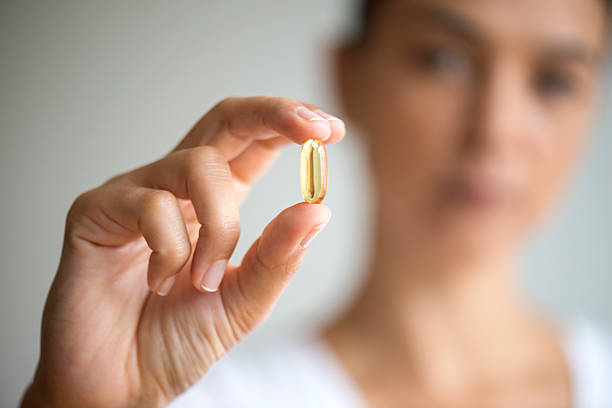An Australian study shows that vitamin E can actually raise blood pressure in hypertensive patients with Type 2 Diabetes. Though it is not clear whether this occurs in people without hypertension, the data suggest that diabetics need to be very careful with this antioxidant vitamin.
Vitamin E: A Cautionary Tale When It Comes to Blood Pressure

The American Heart Association (AHA) warns against taking supplements for antioxidants such as vitamins A, C and E, noting that scientific evidence does not support that these can knock out the need to work to lower your blood pressure, decrease your cholesterol levels or stop smoking.
While some studies show promise that these supplements can potentially reduce rates of heart disease and other risk factors, there isn't sufficient data to support that otherwise healthy people would benefit from supplements beyond the standard daily allowance, AHA says.
There is no recommendation to boost vitamin E — via diet nor supplementation — beyond the standard daily allowance, as the risks could outweigh the rewards.
Recommended E Intake
Per the Office of Dietary Supplements (ODS) at the National Institutes of Health, vitamin E is a fat-soluble nutrient and antioxidant that helps shield your cells from damage.
The Mayo Clinic recommends you get 15 milligrams every day. For reference, many daily multivitamins include about 13.5 milligrams of vitamin E. Standalone supplements of vitamin E can have 67 milligrams or more — far exceeding recommended amounts, ODS notes. Plus, vitamin E deficiency is actually rare, ODS says.
Vitamin E + BP Doesn’t Add Up
As for your blood pressure, too much vitamin E can potentially have a negative impact, Gregg Fonarow, MD, Los Angeles-based interim chief of UCLA's division of cardiology and director of the Ahmanson-UCLA Cardiomyopathy Center, says.
While "some observational studies have suggested vitamin E supplementation has been associated with lower blood pressure," he says, other, more rigorous clinical trials suggest otherwise, with "one study actually suggesting a worsening in blood pressure control."
Hamilton, Ontario-based registered dietitian and nutritional epidemiologist Russell de Souza, ScD, RD, agrees. He says that high blood pressure patients generally face an increased risk for heart failure and warns that recent research has flagged vitamin E supplements for increasing that risk significantly.
And, cautions Mount Sinai, vitamin E supplements could interact with beta blockers for blood pressure (as well as other drugs), and they are typically only needed for those with digestive disorders or after gastrointestinal surgery, as both circumstances may make it harder to absorb fat-soluble vitamins like vitamin E.
The Effect on Whole-Body Health
Beyond blood pressure, per Mayo Clinic, researchers have studied vitamin E's ability to prevent, delay or improve such conditions as:
- Alzheimer's.
- Nonalcoholic fatty liver disease.
- Preeclampsia.
But research yields conflicting results, per Mayo Clinic, with some studies even showing oral vitamin E linked to insulin resistance after two years' usage, plus increased risk of prostate cancer, heart attack and stroke.
ODS notes that vitamin E has also been studied for its potential preventive effect on:
- Heart disease.
- Cancer.
- Eye disorders.
- Mental function.
And, ultimately, ODS says research does not provide overwhelming evidence of vitamin E's ability to prevent any of the preceding conditions — with the exception of oral vitamin E (when combined with zinc and copper) showing potential promise for slowing vision loss.
"The overwhelming evidence from many studies is that vitamin E supplements provide no protection against heart disease, stroke or cancer," de Souza says. "And no good trials have shown a benefit on blood pressure."
Well-Rounded Diet for BP
When intake is kept at an adequate level, vitamin E can help bolster your immune system and help reduce your risk of developing clots, ODS says.
Foods rich in vitamin E, per ODS, include:
- Vegetable oils.
- Nuts and seeds (peanuts, hazelnuts, almonds, sunflower seeds).
- Greens (spinach, broccoli).
To that list, Mayo Clinic adds meats and dairy, and ODS points to a number of foods that come fortified with vitamin E, like:
- Cereals.
- Fruit juices.
- Margarines.
As for keeping your BP under control, de Souza says to eat a healthy diet. "A diet rich in fruits and vegetables and whole grains will be high in potassium," de Souza points out, adding that, unlike vitamin E, potassium is known to help keep blood pressure in check.









